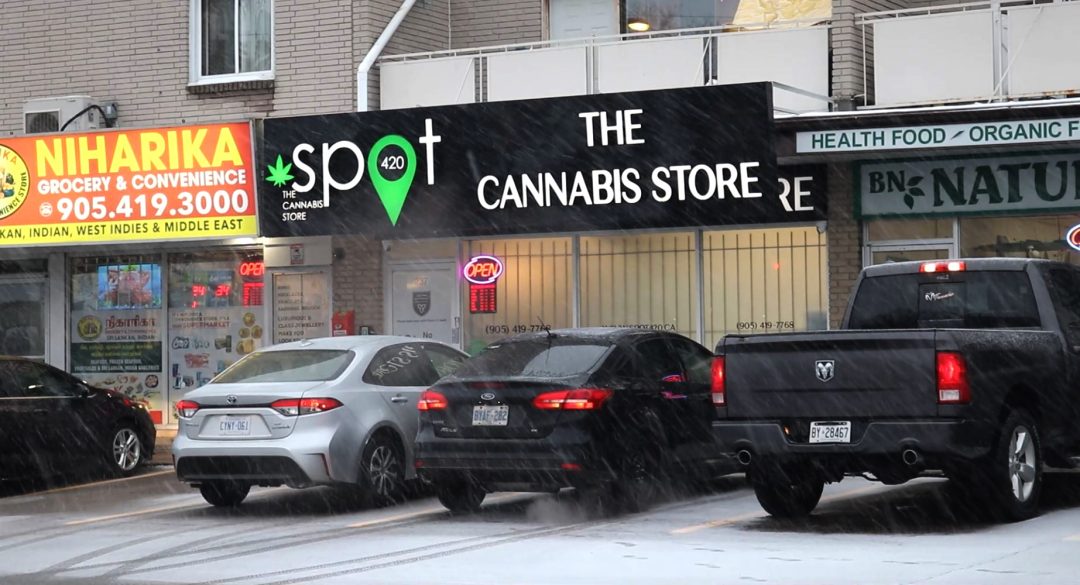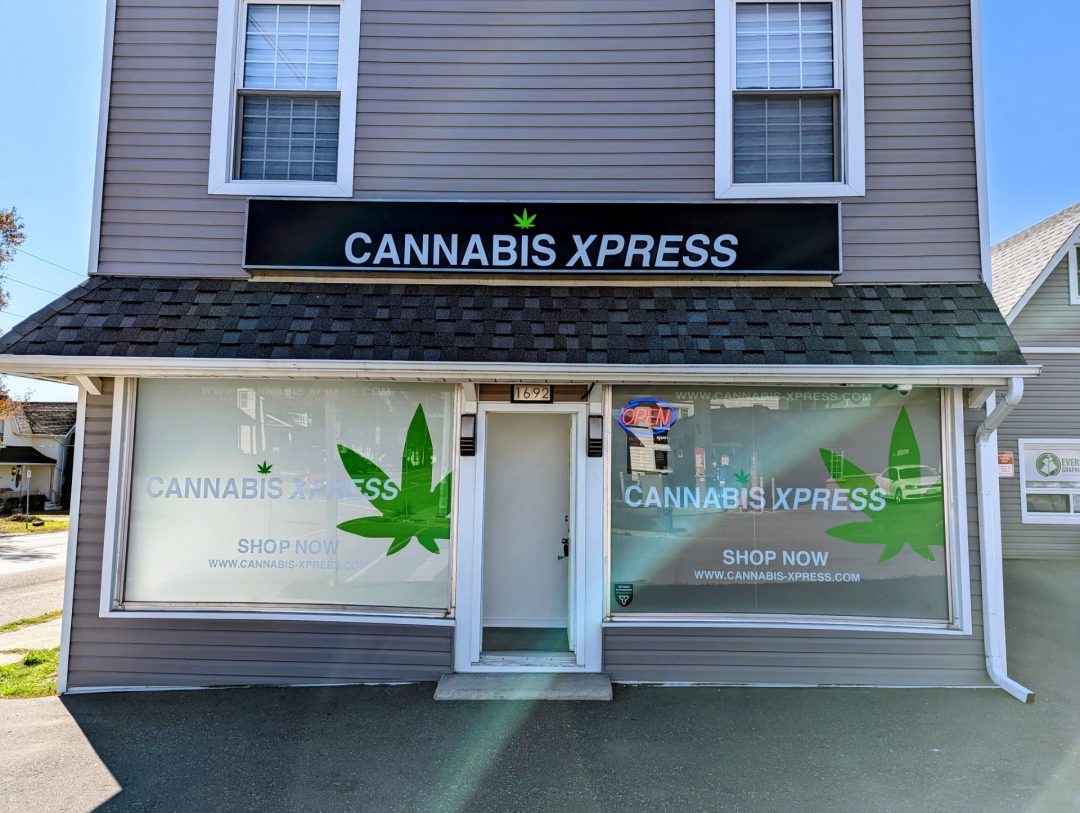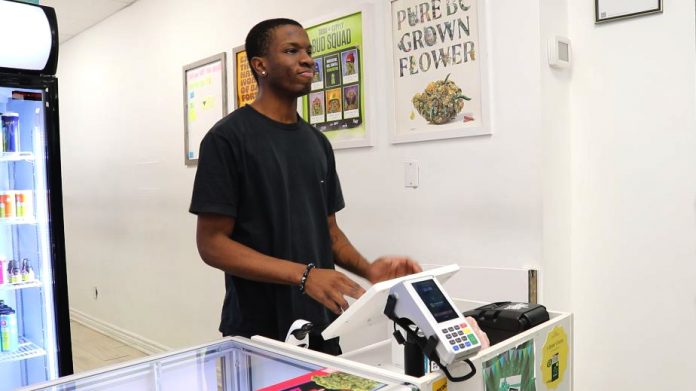Durham Region as seen the number of cannabis stores boom in the six years since marijuana was legalized.
Store owners say it’s a tough fight for small businesses, and some say larger cannabis companies are undermining their success.
In Clarington there are 13 cannabis stores, with eight in Ajax, 14 in Pickering, four in Scugog, four in Brock, four in Uxbridge, and 34 in Oshawa, according to the Alcohol and Gaming Commission of Ontario. Whitby opted out at the time of legalization.
Chris Jones, president of CANNABIS XPRESS, says despite the saturated market, it’s a “fairly friendly, healthy competition.”
“We’re usually the only ones there [in a particular area],” he said. “But for the most part, if you look at any retail business, the most important thing is the location.”
Hakeem Kassim, manager of Clarington’s Spot 420, agrees the competition is healthy.

“I would say it is still, we still have like a little bit of a competitive like level between the different stores, but it is very different just because so many stores sells so many different things,” he said.
Jones’ first business venture was not CANNABIS XPRESS but he was able to use his first experiences in entrepreneurship to help him get into the newly budding cannabis industry.
Jones opened four stores early on. He sold them, and right after started CANNABIS XPRESS.

Jones’ strategy changed by targeting small to medium-sized towns, which Durham Region has in abundance.
Jones said the industry isn’t as sustainable as it was during the first few years of legalization.
According to “An Industry Makes its Mark: The economic and social impact of Canada’s cannabis sector,” in the first four years of legalization the cannabis industry made a $13.3 billion increase to Ontario’s GDP.
However, since then, Canopy Growth has laid off more than 800 people, which comprised 35 per cent of its labour force, according to “Stratcann: For the cannabis community,” a publication for the cannabis industry.
It accuses the federal government of over-regulating and being too involved in the industry.
Jones said another issue with cannabis stores is the market is fixed.
“They spent too much money or costs are too high,” he said. “And there’s like three people across the street from them and they’re all sharing the same customers.”
Jones said many bigger stores will temporarily tank profits to kill off small business.
“I think they were losing like $100,000 a month, $200,000 a month,” he said. “And it was small compared to how much money… the larger company had. So their plan was just to lose money and wait it out until other people kind of give up first.”
Jones said despite the fact there are so many stores in Durham Region, the industry still has a lot of time to grow and expand.
“Some make money and some don’t,” he said. “But I do see, you know, there are a place for a lot of people. Like, there’s the Starbucks, the Tim Hortons, other you know, more mass market. And then you have those like little niche coffee shops.”
He expects the industry to become more like big box stores in future.




